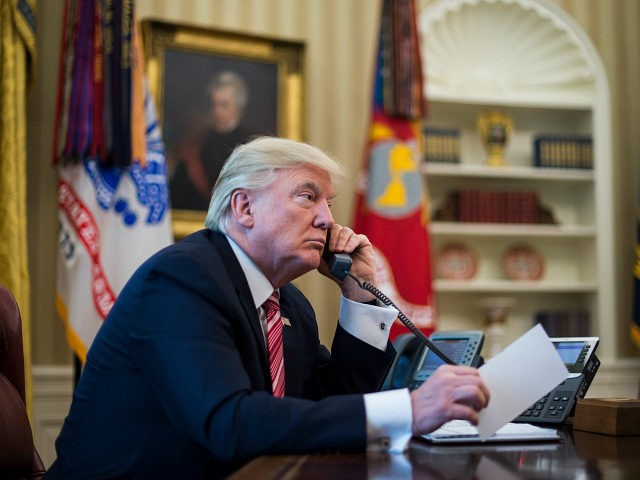TEL AVIV – Any Palestinian violence resulting from President Donald Trump’s recognition of Jerusalem as Israel’s capital will be short-lived, a former senior White House official said on Wednesday.
According to veteran diplomat and Middle East expert Elliot Abrams, despite their declarations otherwise, the Palestinian leadership will ultimately get on board with an American-led peace initiative.
“The Palestinians will walk away until it’s in their interests to come back — which is probably in a month,” Elliott Abrams, who served in foreign policy positions under the Reagan and the George W. Bush administrations, told the Algemeiner.
On Wednesday, Palestinian and other leaders from the Muslim and Arab world were outraged at Trump’s promise to move the U.S. embassy from Tel Aviv to Jerusalem, which he recognized as Israel’s capital. Palestinians were urged to take to the streets for three “days of rage” while other leaders threatened a major uptick in violent attacks.
Palestinian and Muslim world leaders reacted furiously to the US on Wednesday, threatening that the response to the American announcement will be a wave of violence across the Middle East.
In the Gaza Strip, Palestinian protesters stomped on and burned the American flag during a demonstration against Trump’s move — the initial step in the eventual move of the US Embassy in Israel to Jerusalem from its current location in Tel Aviv.
Salah al-Bardawil, a Hamas leader in Gaza, told the Palestinian news agency Ma’an that Trump’s “stupidest decision” amounted to a “declaration of war” and “we as Palestinians are ready to fight.”
Palestinian President Mahmoud Abbas warned Wednesday evening that Trump’s announcement “will lead to wars without end.”
“By these deplorable decisions, the United States deliberately undermines all peace efforts,” he said, adding that the move “is tantamount to the United States abdicating its role as a peace mediator.”
Egyptian President Abdel Fattah el-Sisi, Saudi Arabian Crown Prince Mohammed Bin Salman and Turkish President Recep Tayyip Erdogan all pressured Trump to refrain from making any announcements that concern Jerusalem – considered one of the thorniest issues in the Israeli-Arab conflict – and that doing otherwise would lead to an escalation in violence.
Abrams told the Algemeiner that Trump should respond to such criticism in two ways.
“First, he should say rioters are never going to have veto power on American foreign policy,” Abrams stated. “The threat that there will be violence cannot control what an American president decides.”
He continued, “Second, Trump should say that his decision that Jerusalem is the capital of Israel does not foreclose any particular outcome in peace negotiations.”
“Whatever else Jerusalem may be some day, the capital of a Palestinian state for example, it will always be the capital of Israel, so I think he should argue the merits. This decision closes no door,” he added.
Abrams also dismissed concerns that the Jerusalem announcement will damage burgeoning ties between Israel and Sunni states, saying “people may have been expecting too much” anyway.
“The Saudi foreign minister is not about to fly to Jerusalem and speak to the Knesset anyway, so I don’t think much is lost,” he said. “Again, these governments will do what is in their interests, the Gulf states are interested in working with Israel on military and intelligence matters, and the same is true of Egypt, especially when it comes to the situation in Sinai.”
“There will be speeches, there will be demonstrations, but then they will do what they need to do,” Abrams said.
Abrams lauded Trump for doing what “several presidents in a row promised” but whom always ended up being “dissuaded by threats of violence, and arguments from the State Department about how the Arab world would react.”
“State will always make those arguments,” Abrams said. “I think this president has finally said that the rioters don’t get a veto.”

COMMENTS
Please let us know if you're having issues with commenting.